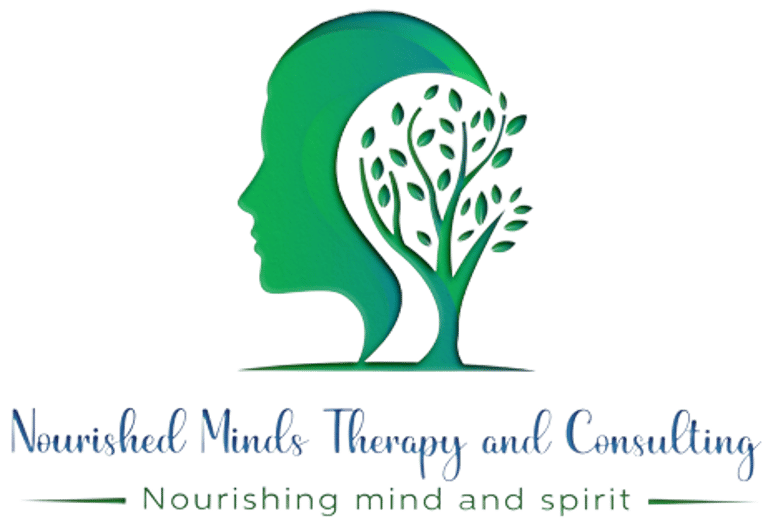Now scheduling EMDR Intensives!
Supporting BIPOC Mental Health
The mental health needs of Black, Indigenous, and People of Color (BIPOC) communities require a unique and culturally sensitive approach. BIPOC therapy isn't just about addressing the universal challenges we all face, such as anxiety or depression. It's about understanding and addressing the specific, systemic, and historical contexts that shape the mental health of these populations. This page covers just some of issues that are unique to BIPOC communities, the trauma and mental health stressors they face, and how therapy can be a powerful tool in navigating these challenges. If you are a person of color and experience any aspects of what I cover below (or any pain related to your identity), it is imperative that you find a therapist who is truly affirming, knowledgeable, and an advocate for your needs.
The Unique Challenges Faced by BIPOC Communities
BIPOC communities encounter a range of mental health issues that are often exacerbated by systemic racism, discrimination, and cultural stigmas. These challenges can manifest in various forms:
1. Racial Trauma: The cumulative impact of racism, whether overt or subtle, can have profound effects on mental health. This trauma can be acute, stemming from specific incidents of racial discrimination or violence, or it can be chronic, resulting from continuous exposure to microaggressions and systemic inequality.
2. Generational Trauma: Many BIPOC individuals carry the psychological scars of historical injustices, such as slavery, colonization, and forced migration. This generational trauma can manifest as anxiety, depression, or other mental health issues that are passed down through families.
3. Cultural Alienation: BIPOC individuals often struggle with cultural alienation, where they feel disconnected from their heritage or pressured to assimilate into a dominant culture that may not reflect their values or experiences. This can lead to a sense of identity confusion and emotional distress.
4. Socioeconomic Disparities: Systemic inequities often result in BIPOC communities facing higher rates of poverty, limited access to education, and healthcare disparities. These socioeconomic factors significantly contribute to mental health challenges, as financial stress and lack of resources can exacerbate psychological distress.
5. Discrimination in Healthcare: The healthcare system, including mental health services, has historically marginalized BIPOC individuals. From implicit bias among providers to underrepresentation in research and treatment models, these communities often face significant barriers to receiving appropriate care.
Types of Trauma Commonly Experienced by BIPOC Communities
Trauma is a prevalent experience in many BIPOC communities, influenced by both individual and collective histories. Some of the most common types of trauma include:
1. Racial Trauma: As mentioned earlier, racial trauma is a pervasive issue. Experiences such as being racially profiled, facing derogatory slurs, or being subjected to racial violence leave lasting psychological scars. Even witnessing these events, whether in person or through media, can be traumatizing.
2. Historical Trauma: Indigenous communities, for example, bear the weight of historical trauma from colonization, forced relocation, and cultural genocide. The long-term effects of such trauma include a higher prevalence of substance use disorders, depression, and suicide.
3. Community Violence: Many BIPOC communities are disproportionately affected by community violence that is in large part a result of carceral and colonialized approaches towards treatment of people of color. Exposure to gun violence, gang activity, or domestic violence can result in complex trauma, particularly in children and adolescents who are most vulnerable.
4. Immigration-Related Trauma: Immigrant families, particularly those from BIPOC backgrounds, often face unique forms of trauma related to migration. This includes the trauma of leaving one’s homeland, the stress of navigating a new cultural environment, and the fear of deportation or family separation.
5. Environmental Trauma: Environmental racism, such as living in areas with higher pollution levels or being disproportionately affected by natural disasters due to inadequate infrastructure, also constitutes a form of trauma. The psychological toll of such environmental injustice is significant and often overlooked.
Mental Health Stressors in BIPOC Communities
Beyond trauma, BIPOC individuals face additional stressors that can impact their mental health:
1. Microaggressions: Daily encounters with microaggressions—subtle, often unintentional discriminatory remarks or behaviors—can erode self-esteem and contribute to chronic stress. Over time, the cumulative effect of microaggressions can lead to anxiety, depression, and other mental health concerns.
2. Stereotype Threat: The pressure to conform to or refute negative stereotypes can be a significant source of stress for BIPOC individuals. This phenomenon, known as stereotype threat, can hinder academic and professional performance and increase anxiety.
3. Cultural Expectations: Within BIPOC communities, there may be cultural expectations that conflict with the dominant culture’s norms. For example, the expectation to prioritize family obligations over individual needs can lead to feelings of guilt, stress, and burnout.
4. Isolation and Loneliness: BIPOC individuals often find themselves as the “only one” in predominantly white spaces, whether at work, school, or in their communities. This isolation can lead to feelings of loneliness and exacerbate mental health issues like depression.
5. Language Barriers: For those whose first language is not English, language barriers can hinder access to mental health services and contribute to feelings of frustration, helplessness, and isolation.
6. Identity Fragmentation: Code-switching can contribute to a sense of identity fragmentation. BIPOC individuals may feel as though they are living double lives, never fully accepted or understood in any environment. This can lead to feelings of isolation, confusion, and distress.
7. Internalized Racism: In some cases, code-switching can lead to internalized racism, where individuals unconsciously adopt negative stereotypes about their own culture in an attempt to assimilate. This can manifest as self-criticism, low self-esteem, and a rejection of one’s cultural heritage.
Addressing the Mental Health Needs of BIPOC Communities Through Therapy
Therapy tailored to the needs of BIPOC individuals is essential in addressing these unique challenges. Culturally competent therapy recognizes the importance of understanding the client’s cultural background, experiences, and identity in the therapeutic process.
1. Culturally Competent Care: Effective BIPOC therapy starts with cultural competence. This means therapists must be aware of their own biases, understand the cultural contexts of their clients, and use culturally relevant interventions. It also involves being attuned to the power dynamics that may exist between the therapist and client, particularly when the therapist is from a different racial or cultural background.
2. Trauma-Informed Therapy: Given the high prevalence of trauma in BIPOC communities, trauma-informed care is critical. This approach involves recognizing the widespread impact of trauma, understanding its signs and symptoms, and integrating this knowledge into treatment practices. Trauma-informed therapy helps create a safe and supportive environment where clients can begin to heal.
3. Empowerment and Advocacy: Therapy should not only focus on individual healing but also on empowerment and advocacy. This can involve helping clients navigate systemic barriers, advocating for their rights, and fostering a sense of agency. Empowerment is particularly important for BIPOC individuals who may feel disempowered by societal structures.
4. Incorporating Cultural Practices: Integrating clients’ cultural practices into therapy can be a powerful way to promote healing. This might include incorporating traditional healing practices, spiritual beliefs, or community-based approaches into the therapeutic process. Recognizing and respecting these practices can strengthen the therapeutic alliance and support holistic healing.
5. Community-Centered Approaches: Community-centered therapy acknowledges that mental health is not just an individual issue but also a communal one. This approach emphasizes the importance of community support, collective healing, and addressing the broader social factors that impact mental health. Group therapy, peer support networks, and community-based interventions can be particularly effective for BIPOC individuals.
Addressing the mental health needs of BIPOC communities requires a comprehensive and culturally sensitive approach. Therapy that is attuned to the unique challenges and traumas faced by these populations can help individuals not only heal from their psychological wounds but also empower them to thrive in a world that often marginalizes their experiences. Nourished Minds Therapy specializes in various treatment approaches to support the healing of BIPOC individuals, and Kathrina Cann is a proud BIPOC therapist.







